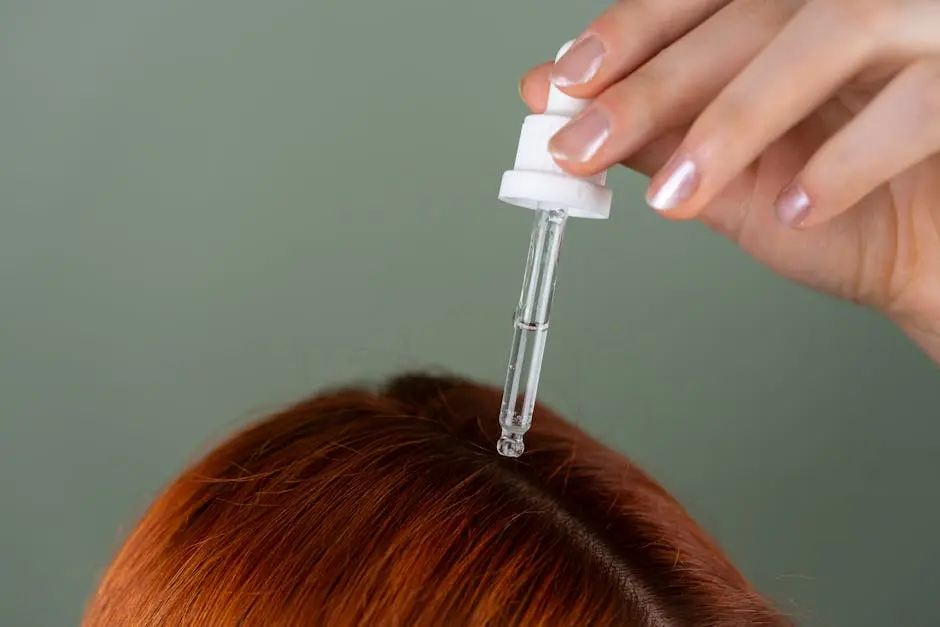If you’ve ever experienced the discomfort of an itchy scalp, you’re not alone. Many people face this annoyance regularly, but the good news is that most causes of an itchy scalp are manageable and treatable. In this blog, we’ll explore some of the most common reasons your scalp might be itchy and offer solutions to alleviate the irritation.
1. Dry Skin and Environmental Factors
Dry skin is a common cause of an itchy scalp, often exacerbated by cold weather or heated indoor environments. During winter months, humidity levels drop, and heating systems can pull even more moisture from the air, leaving your skin and scalp parched. Utilizing moisturizing shampoos and conditioners is key to combatting this issue. These products help to lock in moisture and reduce dryness, providing your scalp with the hydration it needs. Additionally, integrating a humidifier into your home can maintain an ideal moisture balance, offering relief not just to your scalp, but to your overall comfort as well. Regularly conditioning your hair and scalp can also form a protective barrier against harsh environmental factors, making a noticeable difference in dryness and discomfort.
2. Dandruff and Seborrheic Dermatitis
One of the most common culprits of an itchy scalp is dandruff, which is often mistaken for dry skin flakes. Dandruff results from an overproduction of sebum, coupled with an overabundance of a yeast-like fungus known as Malassezia. This combination can lead to irritation and makes the scalp itchy. To address this, medicated shampoos containing active ingredients like ketoconazole or zinc pyrithione are effective. These ingredients work by reducing fungal presence on the scalp and alleviating inflammation. A consistent hair care routine using these shampoos can significantly diminish dandruff symptoms, leading to a healthier scalp overall. Always follow product directions closely to achieve the best results.
3. Reaction to Hair Products
Hair dyes, shampoos, and styling products can sometimes cause allergic reactions leading to itchiness. The chemicals and fragrances added to many commercial hair care products can irritate sensitive scalps, resulting in persistent itching and even rashes. If you suspect a product might be the cause of your scalp discomfort, consider switching to hypoallergenic or fragrance-free alternatives. Products labeled ‘sensitive scalp’ or ‘dermatologically tested’ are specifically designed to minimize irritation and are great options. Furthermore, always perform a patch test before using a new product extensively on your scalp. Doing so can prevent adverse reactions and help you spot potentially irritating ingredients early on.
4. Poor Hygiene Practices
Infrequent hair washing can lead to a buildup of oils and dirt, causing itchiness. Regular cleansing is paramount to maintain a healthy balance of oils in your scalp. When you delay washes, sweat, dead skin cells, and other environmental pollutants accumulate, which can result in an itchy, irritated scalp. To counteract this, ensure a consistent hair care regimen tailored to your hair type. For some, daily washing with a gentle shampoo might be necessary, while others might only need two to three washes per week. Pay attention to how your scalp responds and adjust your routine accordingly. In cases of excessive oiliness, consider a clarifying shampoo once a week to deeply cleanse your scalp without stripping essential moisture.
5. Head Lice
An infestation of head lice is another cause of scalp itchiness, particularly in children. Lice attach themselves to the scalp to feed on human blood, and their saliva causes irritation, resulting in relentless itching. The good news is that head lice can be effectively treated with over-the-counter treatments such as shampoos or lotions containing permethrin or pyrethrin. Fine-toothed lice combs can also help remove lice and nits from the hair. However, it’s crucial to follow treatment instructions meticulously to ensure all lice are eradicated. For added peace of mind, examine all members of the household to prevent further spread.
6. Psoriasis on the Scalp
Scalp psoriasis can cause severe itching and flaking that’s often mistaken for dandruff. Unlike dandruff, psoriasis involves thicker, more inflamed patches that require targeted treatment. Prescribed treatments from a dermatologist often provide the best results, with options ranging from topical steroids to more potent systemic medications in severe cases. Regularly using medicated shampoos designed to address psoriasis can help ease the condition. Additionally, managing stress and maintaining a healthy lifestyle can reduce flare-ups. Since psoriasis is a chronic condition, working closely with healthcare providers to tailor the most effective treatment plan is essential to maintaining scalp comfort.
7. Fungal Infections
Ringworm, a type of fungal infection, can wreak havoc on the scalp. Characterized by round, red patches, this infection is not only itchy but can also lead to significant hair loss if left unmanaged. The underlying cause is a group of fungi known as dermatophytes, which thrive in moist, warm environments. Treatments typically involve topical or oral antifungal medications to completely eradicate the fungi. It’s important to maintain good scalp hygiene and ensure that personal items like combs, brushes, and towels, which can harbor fungi, are kept clean and shared sparingly. Early detection and treatment are key to preventing further complications.
8. Stress-Related Itching
Stress can sometimes manifest physically as itching, a condition known as psychogenic itch. Emotional and mental health play a direct role in skin health, including the scalp. When under significant stress, it’s not uncommon for the body to react through various physical symptoms, including itchiness. Finding ways to manage stress through relaxation techniques, such as mindfulness, yoga, or meditation, can help alleviate the symptoms. Additionally, ensuring adequate sleep and a balanced diet supports a healthy immune system, thus minimizing the impact of stress on your body. If stress-related itching persists, consulting with a healthcare provider for guidance and treatment options may be beneficial.





